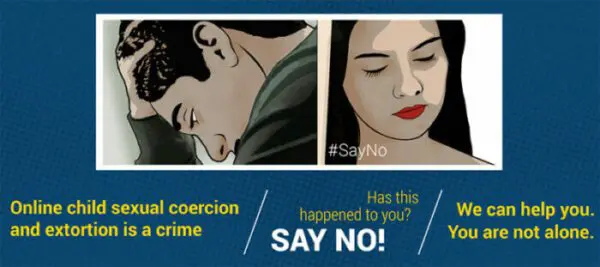A simple photograph could turn into a never-ending cycle of blackmail for money, sex, or worse. Youngsters across the Western Balkans will now have access to Europol resources in their own language to recognise and protect themselves against this worrying online phenomenon, sometimes referred to as sextortion.
In the framework of the European Multidisciplinary Platform Against Criminal Threats (EMPACT), Slovenia, Croatia and Europol’s European Cybercrime Centre have teamed up to establish an expert network in the Western Balkans with the goal to strengthen cross-border cooperation in the fight against child sexual abuse. A strategic report is being drafted on the state of play of the fight against this horrendous crime in the region.
To complete the efforts, Europol’s ‘Say No!’ video has been translated into the national languages of Serbia, Montenegro, North Macedonia and Bosnia and Herzegovina. The video will there be shared with parents, children and teachers to raise awareness in the Western Balkans about child sexual abuse.
This 10-minute video portrays two teenagers, a boy and a girl, being exploited online by a criminal organisation for financial gain and by an individual online sexual offender seeking further sexual material, respectively. The video includes advice as to how such crimes may be reported to law enforcement and how to avoid falling victim in the first place.
The #SayNo! campaign was launched in 2017 by European law enforcement to provide advice to those who have been, or are likely to fall victim to online sexual coercion and extortion and to strengthen reporting and support mechanisms.
The video is now available in the languages of the following 29 countries: Austria, Belgium, Bulgaria, Croatia, Czech Republic, Denmark, Estonia, Finland, France, Germany, Greece, Hungary, Ireland, Italia, Latvia, Lithuania, Malta, the Netherlands, Poland, Portugal, Romania, Slovakia, Slovenia, Spain, Sweden, Bosnia and Herzegovina, Moldova, Montenegro, North Macedonia, Norway, Serbia, Switzerland, Ukraine and the United Kingdom.
Visit the Say No campaign page for more advice.







